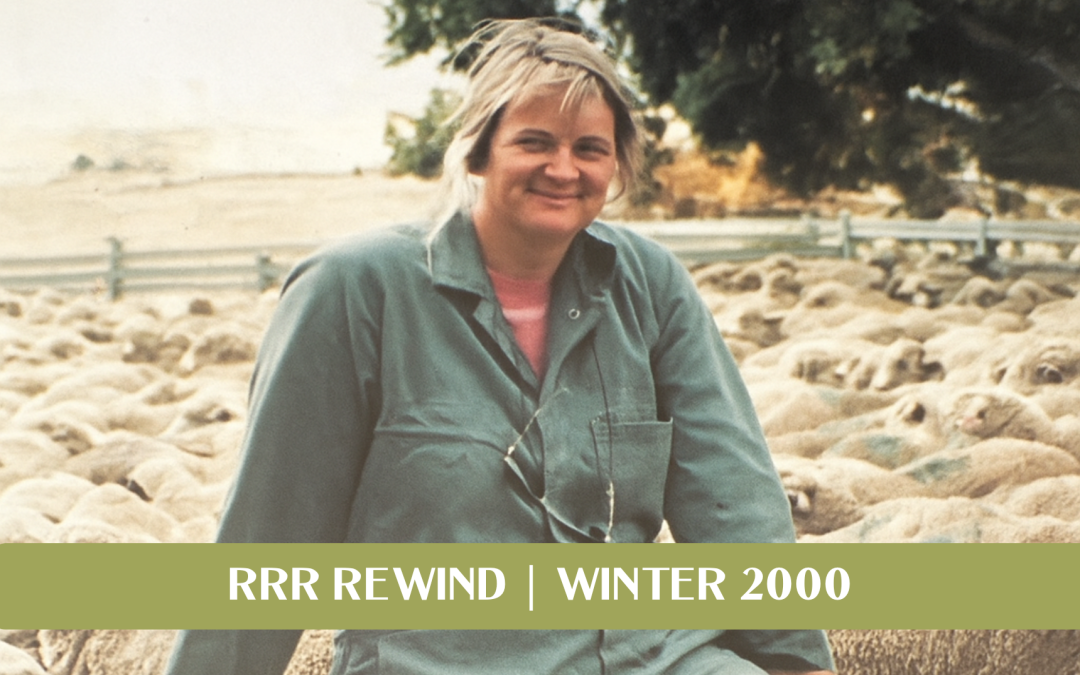Written for the RRR Newsletter | Edition 12, Winter 2000
Michelle Rodan is a District Veterinarian Officer with Agriculture Western Australia.
She is based at Moora and covers an area from Bindoon to Mingenew and inland to Mollerin within the Northern Agricultural Region. Michelle plays a major role in animal disease diagnosis and surveillance work. She is at the forefront of any new or unusual disease.
After five years study at Murdoch University, Michelle graduated in 1983 with a Bachelor of Veterinary Medicine and Surgery. In 1984 she started working as a country vet for a private vet surgeon in the country town of Moora.
An opportunity to work with the Brucellosis and Tuberculosis Eradication Campaign (BETEC) meant a change of work environment and lifestyle for Michelle in the months to follow. She worked in pastoral regions, testing cattle for brucellosis and tuberculosis (TB) throughout the north of WA, including the Kimberley and throughout the Northern Territory.
“We’d work from 4am to 5pm daily, seven days a week testing up to 2500 cattle a day,” Michelle recalls. “I remember working for six months without returning to base and it wasn’t uncommon to spend two months flying from station to station with an assigned pilot.”
While conditions were often hot and dusty, Michelle says the station lifestyle was an interesting experience.
“I recall the welcome by the women, looking for news and social contact,” she said. “I was in my mid-twenties and keen and eager to learn from them as well.”
In 1986 Michelle joined Agriculture Western Australia taking on a veterinary position at the Albany office. After five years she gained experience in footrot management and quarantine. Then came a transfer to the Midland office for two years, a short stint at Narrogin, marriage to husband Shane, the arrival of two sons (Nicholas, seven, and Matthew, five) and a location back to Moora in 1996.
Michelle enthusiastically endorses a veterinary career. “Working as a vet has always offered a wide and interesting variety of work, from the injured bobtail lizard to the $25,000 stud ram with kidney stones,” she said.
Michelle spent most of her childhood and working life moving around country WA. She attended 11 different school over her 12 years, from Denmark to Derby.
“I have been lucky to move around and meet so many wonderfully interesting people,” she said. “The rural community has such a fantastic spirit. People take control of their own destinies and have the ability to make things happen. You only have to look at the Moora community after the tragedy of the floods and how everybody pulled together to get things back on track”.
Cyclones Elaine and Vance poured a massive 200ml (eight inches) of rain over the catchment area causing major flooding in the Moora townsite and surrounds in late March 1999. Michelle and her two boys were evacuated to Perth in the middle of the night. She was quick to return to Moora to assist with the town cleanup.
Michelle advised local landholders on how to deal with stranded stock, animal nutrition and feeding requirements. She palyed a leading role with the Agriculture Western Australia emergency response team and flew over the area to assess the agriculture damage along the Moore River sighting erosion, stock losses and pasture and environmental damage.
Michelle has seen a number of changes in agriculture over the past 17 years. “When I first started with Agriculture Western Australia, we did a lot of disease diagnosis on farms,” she said. “Much of the work today is protecting the export market. We do a lot of surveillance for livestock diseases that are not in Western Australia so that we can justify to our foreign partners that we are free of a disease. Some of our current work involves collecting samples from sheep flocks to test for Johnes Disease.”
These days Michelle works part-time, juggling, like all working ‘mums’, a busy family life with a great job.

